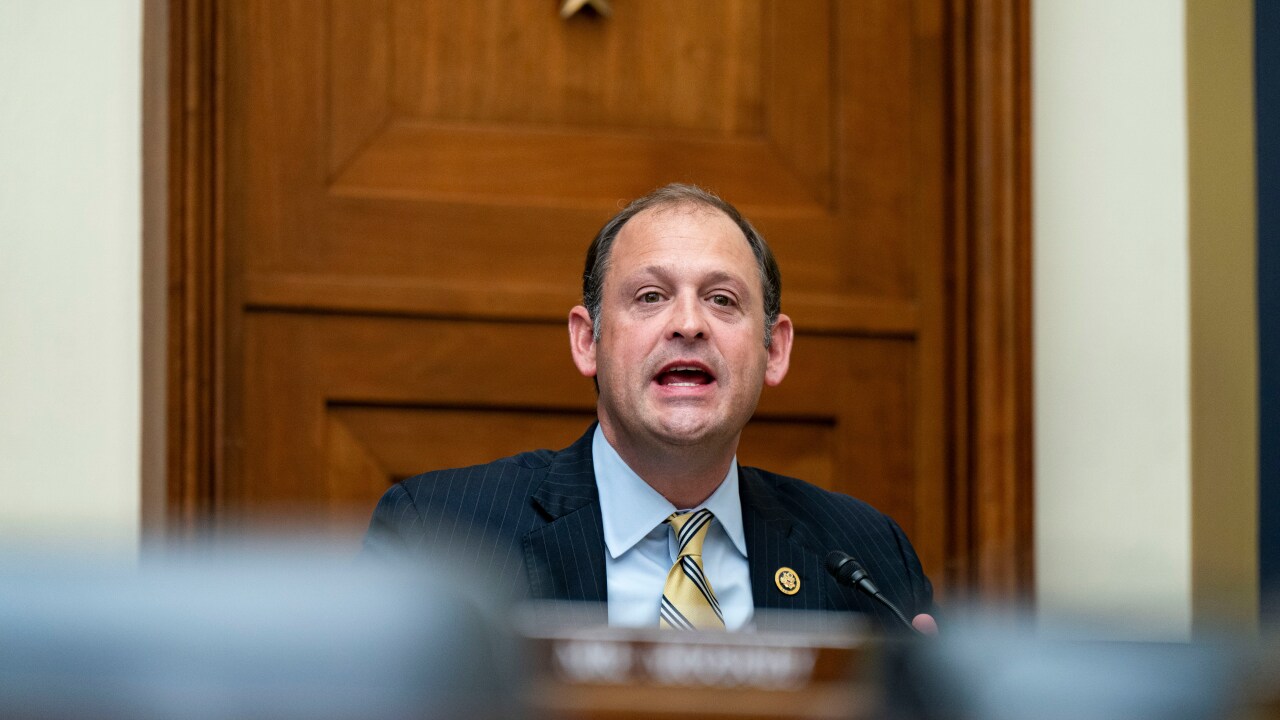In a major victory for the derivatives industry, the Supreme Court yesterday ruled that the Commodity Futures Trading Commission does not have regulatory power over certain over-the-counter derivatives transactions.
Specifically, the high court unanimously ruled in the case, William C. Dunn v. Commodity Futures Trading Commission, that over-the-counter options involving foreign currency are outside the agency's regulatory purview under provisions of the Commodity Exchange Act.
"We are not persuaded by any of the arguments advanced by the CFTC in support of a narrower reading that would exempt futures contracts without exempting options," the court said in a majority opinion written by Justice John Paul Stevens.
Although the case involved foreign currency-linked derivatives, some over-the-counter industry players feel the ruling has a broader impact for all derivatives trades, including municipal transactions. They lauded the court's decision saying it adds some legal clarity to these complex and growing markets.
"The Supreme Court decision insures a bright-line boundary and adds to legal certainty for privately negotiated derivatives," said Mark Brickell, managing director at J.P. Morgan & Co. and a member of the International Swaps and Derivatives Association's board of directors.
At question in the case was the so-called Treasury Amendment, a controversial provision in futures trading law that exempts certain financial derivative transactions from the government's oversight.
William Dunn, a hedge fund operator, was accused by the CFTC of fraud after nearly $200 million in retail customer funds were lost from foreign currency-linked trades. The agency said the transactions were illegal because they were not traded on a futures exchange.
But industry players and top regulators - including Federal Reserve Board chairman Alan Greenspan - all have argued that the CFTC is misinterpreting futures trading laws.
Under the Commodity Exchange Act, futures contracts are required to be traded on a CFTC-regulated futures exchange. But under the Treasury Amendment - added to the act by Congress in the 1970s to provide legal clarity and regulatory ease - certain foreign exchange and government securities-linked trades that are conducted between sophisticated parties are exempt from that requirement, even though they are characteristically similar to futures contracts.
Over the past few years, the CFTC has used the exchange trading requirement to go after bucket shop operations operating off-exchange, and argued before the Supreme Court in this case that it has the power to do so. But many industry players fear the commission's regulatory efforts could cause legal uncertainty for many existing off-exchange contracts.
"We're obviously very pleased with the ruling; for PSA it's important because it reaffirms the Treasury Amendment's exclusion for off-exchange transactions," said Paul Saltzman, senior vice president and general counsel for the bond market trade association. "The statute is clear on its face and the Supreme Court afforded the language a plain-language meaning."
The high court's opinion comes at a crucial time as lawmakers on the Senate Agriculture Committee have begun considering legislation that aims to clarify how much policing authority the CFTC has in the over-the-counter markets.
"The Supreme Court opinion illustrates the importance and the complexity of the Treasury Amendment, and underlines the need for Congress to make decisions about what financial products should and should not be subject to CFTC jurisdiction," a committee aide said. "Obviously that's one of the main points of our bill."
The court's ruling wasn't good news for the nation's futures markets, which feel the OTC derivative industry has found a loophole in futures trading law and is luring away business and crippling their competitiveness.
"The future of exchange markets as we know them is now at risk," warned Chicago Board of Trade chairman Patrick Arbor. "The Chicago Board of Trade and other exchanges face a competitive 'Mission Impossible' against over- the-counter markets that can now, with legal certainty, trade many of our products free of regulatory costs and burdens."
Arbor called the court's ruling an "unfair predicament" and said it can only be corrected in Congress.
Derivatives industry players, regulators, and lawmakers still feel there is a strong need for legislation to clarify the CFTC's oversight powers. "I don't think it removes the impetus for legislation," said Zachary Snow, who chairs the Securities Industry Association's OTC derivatives products committee and is a managing director at Salomon Brothers Inc.
Even the Supreme Court, in its opinion, said Congress has issues it must address regarding the Treasury Amendment.
"Underlying the statutory construction question before us, we recognize that there is an important public policy dispute - with substantial arguments favoring each side," the court wrote.
The CFTC agreed.
"The opinion does not address many of the broader policy issues raised by the Treasury Amendment which are currently being considered by Congress," said the agency's general counsel Daniel Waldman.





